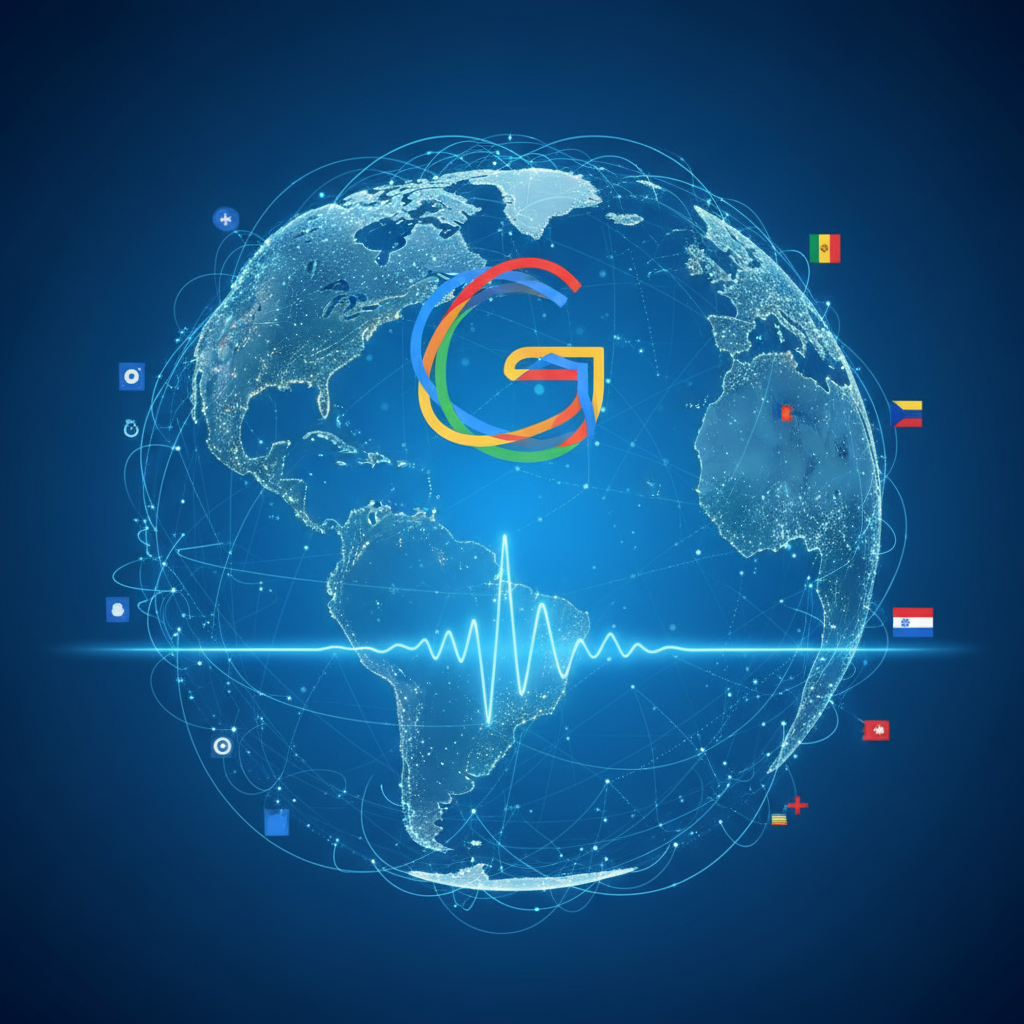Breaking Down Language Barriers: Google Search AI Mode Goes Global!
Remember that initial buzz when Google first hinted at a dedicated AI chatbot within Search? A powerful tool, promising to revolutionize how we find information, understand complex topics, and even brainstorm ideas. For many, however, that excitement was tempered by a simple question: “When will it be available in my language?” Well, the wait is over for a significant portion of the global internet community! Google has just announced a massive expansion of its AI Mode in Search, bringing this innovative technology to 40 new regions and an astounding 35 new languages. This isn’t just an update; it’s a leap forward in making advanced AI accessible and truly global.
This rapid expansion, which follows a preview with testers in its Labs program earlier this year, showcases Google’s commitment to democratizing access to information and advanced AI capabilities. From Arabic to Vietnamese, the world is now better equipped to leverage the power of generative AI directly within their search experience. Let’s dive into what this means for users worldwide.
A World of Information, Understood and Answered
The core of this expansion lies in Google’s custom Gemini model for Search. This isn’t just about translating English responses; it’s about deep linguistic understanding. Google emphasizes that Gemini’s “advanced reasoning and multimodal understanding” allow it to grasp the nuances and subtleties of local languages. This is crucial because it directly addresses one of the biggest challenges in AI localization: avoiding misunderstandings and preventing stilted, unnatural answers.
Imagine searching for local delicacies, understanding complex medical terms in your native tongue, or researching historical events specific to your region, all with the clarity and contextual awareness of a native speaker. Previously, users in non-English speaking regions often had to rely on translations or hope that search engines could accurately interpret their queries. With AI Mode’s expansion, this barrier is significantly lowered. The AI can now provide more relevant, nuanced, and culturally appropriate responses, making the search experience incredibly more effective and enjoyable.
Consider a user in Thailand asking about intricate traditional recipes. Instead of a generic, possibly translated response, the AI can now tap into the subtleties of the Thai language to provide highly specific instructions, local ingredient alternatives, and even cultural context. This isn’t just about finding information; it’s about *understanding* it deeply, transcending simple language translation.
Beyond Translation: The Power of Multimodal Understanding
The mention of “multimodal understanding” is particularly exciting. This implies that the Gemini model isn’t just processing text; it’s capable of interpreting various forms of input and output, including potentially images, audio, and more, as it evolves. While primarily focused on conversational search currently, this foundational capability bodes well for future enhancements that could truly blur the lines between different forms of information retrieval.
For now, in its expanded linguistic capabilities, this means the AI can better interpret queries that might involve cultural references, slang, or context-dependent phrases that are difficult for traditional search algorithms to grasp. It’s about getting to the *intent* behind the words, no matter the language. This refined understanding will lead to more accurate summaries, more insightful answers to complex questions, and a generally more satisfying search experience across a spectrum of topics.
- Enhanced Learning: Students and lifelong learners in new regions can now access complex topics and receive explanations tailored to their linguistic and cultural context.
- Empowered Businesses: Small businesses can research market trends and competitor analysis with greater precision in their local languages.
- Improved Daily Life: From troubleshooting household issues to planning local travel, information previously hard to access or understand becomes readily available.
What This Means for the Global User Experience
The list of newly supported languages is extensive and diverse, including Arabic, Chinese, Croatian, Czech, Dutch, German, Greek, French, Malay, Russian, Thai, Vietnamese, and many more. This wide-ranging inclusion demonstrates a clear commitment from Google to inclusivity and global accessibility. It’s a testament to the power of a globalized internet and the demand for personalized, localized digital experiences.
This expansion isn’t merely a feature rollout; it’s a strategic move that fundamentally shifts how a significant portion of the world interacts with information. It addresses the digital divide not just in terms of access to the internet, but in terms of access to *understandable* and *relevant* information on the internet. As AI continues to evolve, its ability to bridge linguistic gaps will be paramount in fostering a more connected and informed global society.
For individual users, this translates into:
- More Natural Interactions: Communicating with Search AI in one’s native tongue feels more intuitive and less like translating one’s thoughts to fit a system.
- Deeper Comprehension: Complex subjects can be explained in terms that resonate culturally and linguistically, leading to better understanding.
- Reduced Frustration: No more struggling with English keywords or imprecise translations; users can simply ask what they want to know.
The Future is Multilingual and AI-Powered
Google’s commitment to rapidly expanding AI Mode in Search across so many languages and regions is a clear signal: the future of information access is deeply intertwined with advanced AI and global inclusivity. This isn’t just about Google’s technological prowess; it’s about recognizing the diverse needs of its billions of users worldwide.
As AI models like Gemini continue to improve their understanding of human language and intent, we can expect even more seamless and powerful interactions. This expansion is a critical step towards a truly personalized and universally accessible search experience, where language is no longer a barrier but a bridge to knowledge. Get ready to explore the world’s information in your own words – Google’s AI Mode is here to help.
